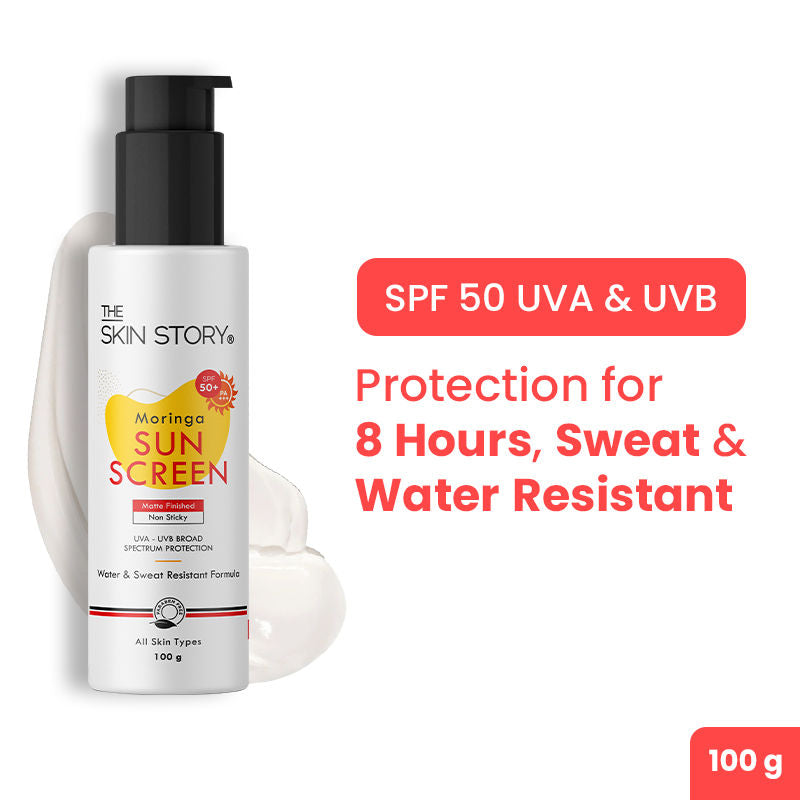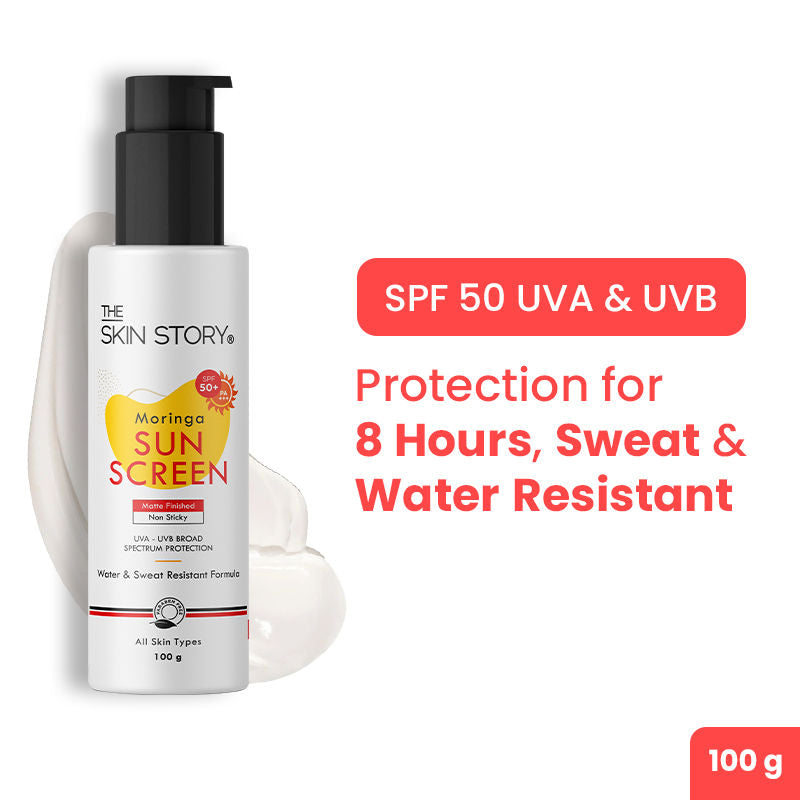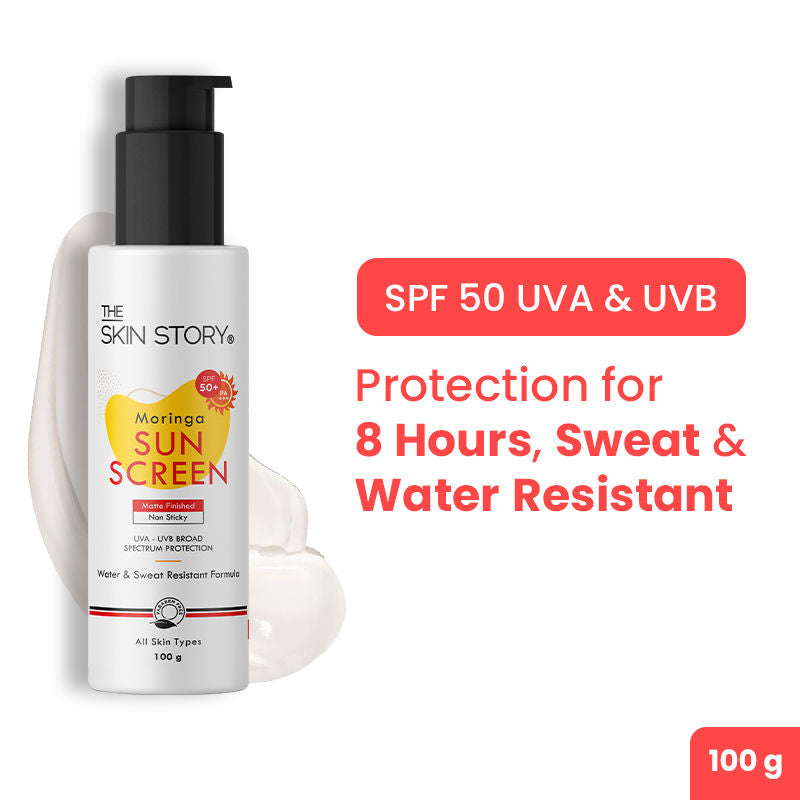
Highlights
WHAT IS IT?
Sunscreen with key antioxidant ingredient moringa and SPF 50+ PA+++ protection
FEATURES
Broad spectrum UVA and UVB protection with SPF 50 and PA+++, enriched with antioxidant moringa, anti-aging benefits, lightweight and oil-free formula, matte finish, water- and sweat-resistant
BEST FOR
oily
CHECKS
No white cast, Non sticky, Oil-free
Who Is It For?
Unspecified Age Range Targeted For WomenWhat Does It Help With?
Detan Anti-aging Sunburn Prevention Skin Darkening Prevention Protection From Free RadicalsBudget
Affordable (under $30)How To Use
Which routine should it be used in?
Instructions:
Key Information










What The Skin Story Says
Product Description:
Moringa Sunscreen SPF 50 shields skin against UVA and UVB rays, preventing sunburn, tan lines, skin darkening, and premature aging. The antioxidant moringa also prevents the formation of free radicals, thereby protecting the skin. Water- and sweat-resistant formula. This sunscreen cream is well suited for oily skin and gives matte skin.
About the Brand:
Ingredients Overview
Ingredients List
Aqua,Octyl-Methoxycinnamate,Ethylhexyl-Salicylate,Cellulose,Cellulose-Gum,Zinc-Oxide,Titanium-Dioxide,Phenylbenzimidazole-Sulfonic-Acid,Glyceryl-Stearate,PEG-100-Stearate,Caprylic-Capric-Triglyceride,C12-15-Alkyl-Benzoate,Butyl-Methoxy-Dibenzoyl-Methane,Ethylhexyl-Triazone,Polyacrylamide,C13-14-Isoparaffin,Laureth-7,Ceto-Stearyl-Alcohol,Glycerin,Glyceryl-Acrylate/Acrylic-Acid-Copolymer,PVM/MA-Copolymer,Phenoxyethanol,Ethylhexylglycerin,Disodium-EDTA,Moringa-Oleifera-Seed-Oil,Tocopheryl-Acetate,Perfume
Key Ingredients
SPF 50,Moringa,PA+++
Ingredients Details
Cellulose
Ethylhexylglycerin
Glycerin
Laureth-7



